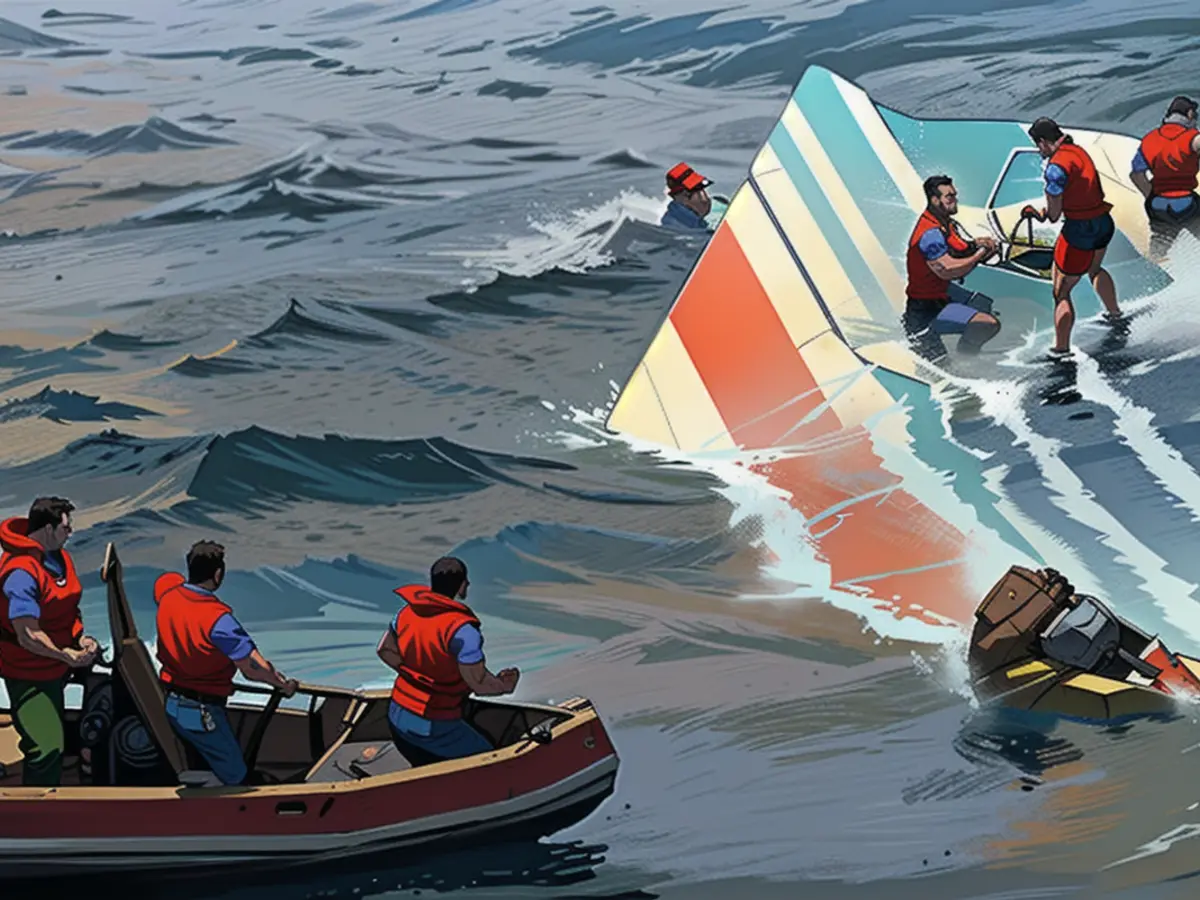The air disaster of AF 447 remains unaccounted for after 15 years.
In 2009, 228 people tragically lost their lives when an Air France plane plummeted into the Atlantic Ocean between Rio de Janeiro and Paris. Fifteen years have passed, but the legal proceedings surrounding the incident are still ongoing. Airbus and Air France are back in court in Paris, facing charges of negligent homicide. The loved ones of those who perished are feeling a mix of hope and exhaustion as they continue their battle for answers.
The infamous Air France flight, AF 447, encountered a storm front during its journey from Rio to Paris on June 1, 2009. The Airbus A330 plunged more than a thousand meters into the Atlantic, with 228 people, including 28 Germans, never to be seen again. The circumstances surrounding the accident remained unclear for some time. It wasn't until May 2011 that the final bodies and the flight data recorder were finally retrieved from a depth of around 4000 meters.
One of the victims, Ines, was just 31 years old. Her father, Bernd Gans from Vaterstetten in Bavaria, describes the long-drawn-out investigation as a "malicious policy of abduction," particularly in relation to the search for the wreck and the ongoing legal wrangling. The elderly chairman of the German victims' association, HIOP AF447, agrees it feels like a major consolation for the relatives of both countries.
Both Air France and Airbus were cleared almost a year ago; however, their alleged negligence or carelessness could not be definitively linked to the crash. The court understood this to mean that their mistakes had no legal relevance. Gans feels the justification is arbitrary. The French victims' organization Entraide et Solidarité AF447 found the verdict utterly shocking.
The trial's focus was on whether Air France could have better prepared its pilots for extreme conditions. The indictment accused Airbus of undervaluing the implications of the failure of the pitot tubes, which are responsible for measuring speed. These tubes had frozen during the journey. An expert report from 2012 found that the crew were overwhelmed by the situation they could actually handle.
Airbus and Air France denied any responsibility for the crash. The verdict mentioned that Airbus had not thoroughly investigated previous incidents with the tubes and had withheld information. Air France could have done more to inform its pilots about the issues with the tubes. In spite of this, the prosecutor has appealed the verdict on behalf of the relatives, over 500 of whom participated as co-defendants. However, no date has been set for the appeal proceedings as of yet.
Danielle Lamy of the French victims' organization shows her doubts about the process. "Should we make the families of the victims go through the trauma of a pointless and fruitless attempt, and endure more legal upheaval?" The members of the victims' group are steadfast in their quest for the errors to be recognized and a guilty verdict to be handed down.
Even Gans believes this time may be different, especially in light of the tragic Boeing 737-Max crashes in 2018 and 2019 which claimed the lives of 346 people. Air France has significantly improved its pilot training. Airbus and Thales are more likely to think twice before introducing any new technology into service. "Just sweeping things under the rug won't work anymore," says Gans. He stresses that it's not just about remembering, but also about making changes to prevent future tragedies. "The judiciary has a crucial role to play in addressing these issues."
On the anniversary of the accident, Bernd Gans and his wife will take a break from the legal proceedings, reflecting on the loss of their daughter and the lives of 227 others. In the aftermath of the crash, they, along with other grieving families, donated organ pipes in their daughter Ines's name to a church. "We have a strong connection to her there," Gans explains.
The families are less concerned with the potential fines for the companies. Their main aim is to contribute to increased safety in air travel. Gans argues, "It's really a different situation now. Air France has improved its training. Airbus and Thales are likely to think more carefully when introducing new technologies into service. 'Just sweeping things under the rug' is no longer an option." It's about keeping the memory alive and ensuring future accidents are prevented. "And the judiciary has an important role in all this."
Read also:
- Despite Airbus Group being cleared in relation to the Air France Flight 447 crash, some relatives of the victims still question the justification, with Gans from Vaterstetten in Bavaria referring to it as arbitrary.
- The ongoing trial involving Air France and Airbus revolves around the question of whether Air France could have better prepared its pilots for extreme conditions, as the indictment accuses Airbus of undervaluing the implications of pitot tube failures.
- Air France, along with Airbus and Thales, has made significant improvements in pilot training following the tragic Boeing 737-Max crashes between 2018 and 2019, prompting Gans to believe that neglecting safety measures will no longer be an option in the future.
- Fifteen years have passed since the Air France Flight 447 crash, which took the lives of 228 individuals, including 28 Germans, between Rio de Janeiro and Paris, and the families of these victims are continuing their quest for accountability and improved air travel safety.






